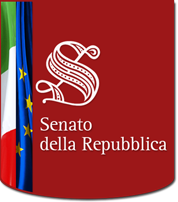L'importante è partecipare. 1996-2017: come (e quanto) ha contribuito il Senato alla formazione delle leggi europee?

È sempre stato il governo, fino alla XV legislatura, a selezionare e a trasmettere al Parlamento gli atti dell'Unione europea da esaminare. Ed è stato un flusso molto discontinuo - due documenti nel 1999, 115 nel 2000, uno solo nel 2002 - fino a quando, su iniziativa dell'allora presidente José Barroso, nel 2006 la Commissione europea ha cambiato prassi, cominciando a inviare direttamente atti e proposte di legge ai Parlamenti nazionali.
Nel 2009 il Trattato di Lisbona ha poi introdotto il controllo di sussidiarietà. E la partecipazione del Senato alla formazione del diritto europeo è più che centuplicata: dai due pareri approvati nella XIII legislatura è passata, nella XVII, a ben 250.
Oggi, tra dialogo politico e controllo di sussidiarietà, il flusso tra Bruxelles e Roma è continuo: nell'ultima legislatura il Senato ha "lavorato" 924 atti - nella XVI erano stati 435 - di cui una decina segnalati dal governo ogni settimana perché di particolare rilevanza o interesse nazionale. Ma come sono riusciti i senatori a fornire, entro un massimo di 40 giorni, il loro parere motivato? In quale modo si sono organizzate le commissioni per reggere un ritmo sempre più pressante? Qui la prima analisi statistica sulle procedure adottate a Palazzo Madama.
1996-2017: how (and how much) has the Italian Senate contributed to the formation of European laws?
Up until the fifteenth legislature, it was the Italian government's prerogative to select which European Union acts to send to Parliament for examination. The flow varied widely - two documents in 1999, 115 in 2000, and just one in 2002 - until the European Commission changed its practice in 2006, under an initiative by then-President José Barroso, when it began directly sending acts and law bills to National Parliaments.
In 2009, the Lisbon Treaty brought in subsidiarity checks. Senate participation in the formation of European law has risen over a hundred-fold: from just two opinions issued during the XIII legislature to as many as 250 in the XVII legislature.
Today, between political dialogue and checks on subsidiarity, the flow between Brussels and Rome is non-stop. During the most recent legislature, the Senate has "processed" 924 acts - compared with 435 in the XVI legislature - of which the government flags a dozen or so each week as being of special importance or of national interest. How do Senators manage to provide a reasoned opinion within the forty-day deadline? How are its committees organized to cope with this increasingly pressing pace? We publish here the first statistical analysis of the procedures adopted at Palazzo Madama to the pot.







 Focus
Focus